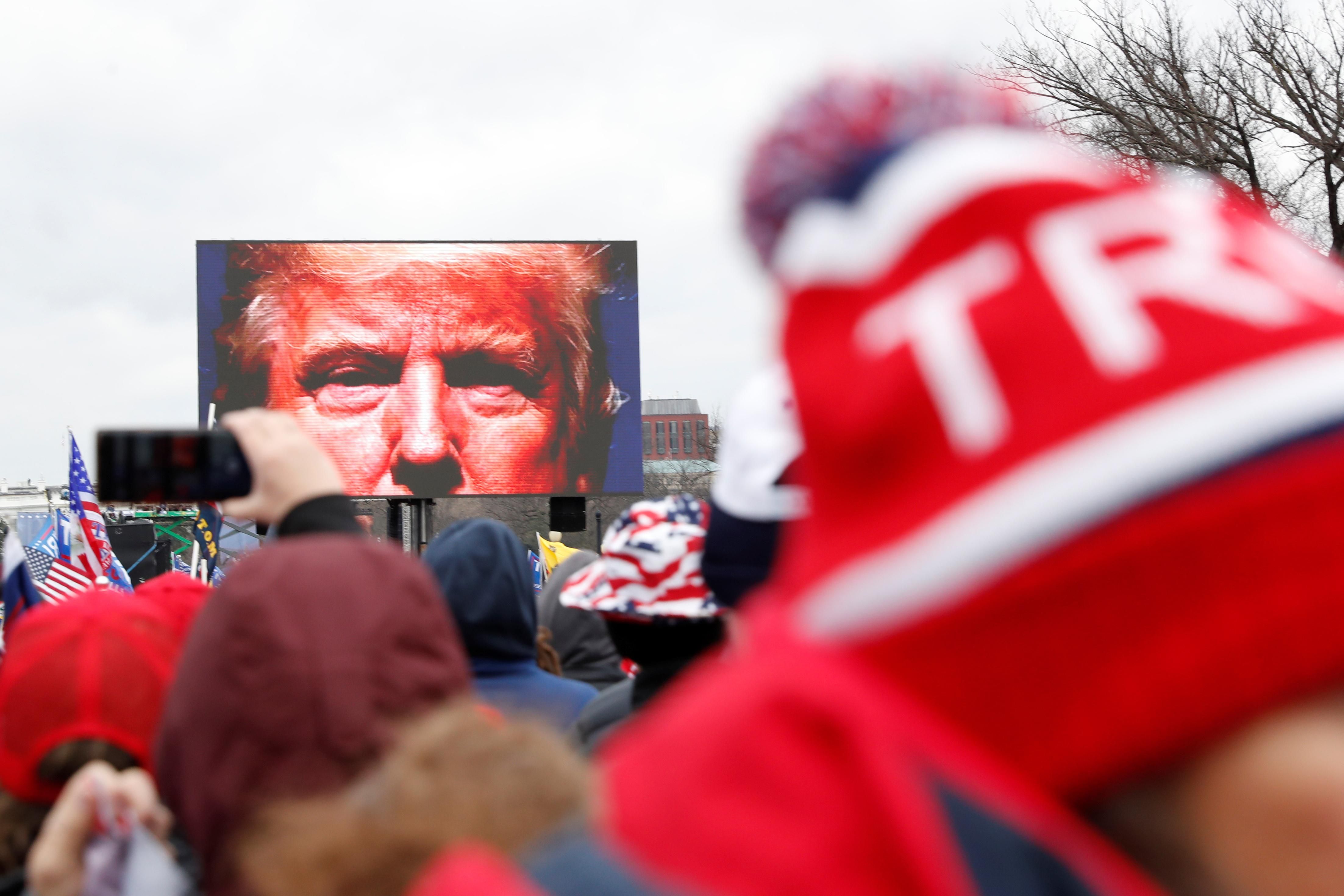January 11, 2021
After last week's storming of the US Capitol building, we asked whether Congress would act to hold President Trump responsible for inciting the insurrection to overturn the result of the 2020 election. We now know the answer: House Democrats on Monday unveiled an article of impeachment against Trump.
But though the House will vote in the coming days to begin the process, Trump — the first US president to be impeached twice — will no longer be in office by the time a trial begins in the Senate. So, why do it? Here are a few arguments for and against.
In favor. First, whatever happens in the Senate, impeachment by the House would make it clear to future presidents that encouraging violence against the government comes with consequences. If Congress were to avoid taking forceful action in an extreme case like this, the boundaries of acceptable political behavior might expand dramatically.
Second, impeaching Trump can lead to a vote to bar him from election to any federal office in the future. While conviction requires a two-thirds vote from senators, a simple majority could then ban the president from running for president in 2024, stripping him of some of his power over the Republican Party. A permanent ban would be favored openly by Democrats and maybe a few Republicans who fear Trump would freeze the 2024 GOP race by teasing a second run.
Against. First, unless Trump commits some other highly provocative act, impeachment will very likely fail again in the Senate and Trump will be acquitted. Although more Republican senators may support Trump's conviction this time, Democrats don't have the minimum 67 votes needed to remove him from office. For Trump's supporters, a second acquittal would vindicate Trump's actions, restore some of his standing within the GOP, and could even encourage more violence.
Second, despite the gravity of last week's events, impeachment remains an extremely divisive issue among Americans. Roughly the same number of Republican voters oppose it now compared to when Trump was first impeached in late 2019. Expect the GOP to argue that Americans are tired of red vs blue, and that it's time to "heal" — an argument similar to the one Gerald Ford made in pardoning Richard Nixon in 1974.
Third, impeachment is a big gamble for the incoming Biden administration at a time when — with slim majorities in the House and Senate — it'll need to deploy much of its political capital to get crucial legislation passed on pandemic relief measures like additional stimulus checks and to step up vaccinations. With the US currently reporting more than 3,500 COVID-19 deaths and upwards of 200,000 new cases each day, the public health crisis is a more urgent problem (and Biden may need a few Republican votes to offset possible resistance by moderate Democrats to some of his big-spending plans).
This may take a while. Though the process starts today, it'll end whenever it suits the Democrats, because they can decide when to forward the case to the Senate. Democratic House majority whip James Clyburn hinted on Sunday that the House may hold off on sending the article of impeachment to the Senate for weeks, so President-elect Joe Biden and the new Congress can focus on an ambitious legislative agenda during Biden's first 100 days in office.
Either way, the fate of impeachment 2.0 depends on Trump. His behavior in the coming days will determine whether Democrats can persuade enough Republican senators to convict Trump of "high crimes and misdemeanors." If the president — recently deplatformed from social media — keeps his cool, momentum toward action may recede. But if he tries to incite more violence from his supporters, or tests the limits of presidential power by pardoning himself, the political temperature in Washington will turn even hotter.More For You
- YouTube
China was largely absent from the core conversations at the 2026 Munich Security Conference. That, says Ian Bremmer, is telling.
Most Popular
- YouTube
At the 2026 Munich Security Conference, Brad Smith announces the launch of the Trusted Tech Alliance, a coalition of global technology leaders, including Microsoft, committing to secure cross-border tech flows, ethical governance, and stronger data protections.
When the US shift from defending the postwar rules-based order to challenging it, what kind of global system emerges? CFR President Michael Froman joins Ian Bremmer on the GZERO World Podcast to discuss the global order under Trump's second term.
TODAY at 12 pm ET: Watch our Global Stage live premiere from the Munich Security Conference
Feb 13, 2026
Tune in today at 12pm ET/6pm CET for the live premiere of our Global Stage from the 2026 Munich Security Conference, where our panel of experts takes aim at the latest global security challenges. NY Times National Security Correspondent David Sanger moderates the discussion with Benedetta Berti, Secretary General, NATO Parliamentary Assembly; Ian Bremmer, President & Co-founder, Eurasia Group & GZERO Media; Dr. Wolfgang Dierker, Global Head of Government Affairs, SAP; and Brad Smith, Vice Chair & President, Microsoft.
© 2025 GZERO Media. All Rights Reserved | A Eurasia Group media company.
